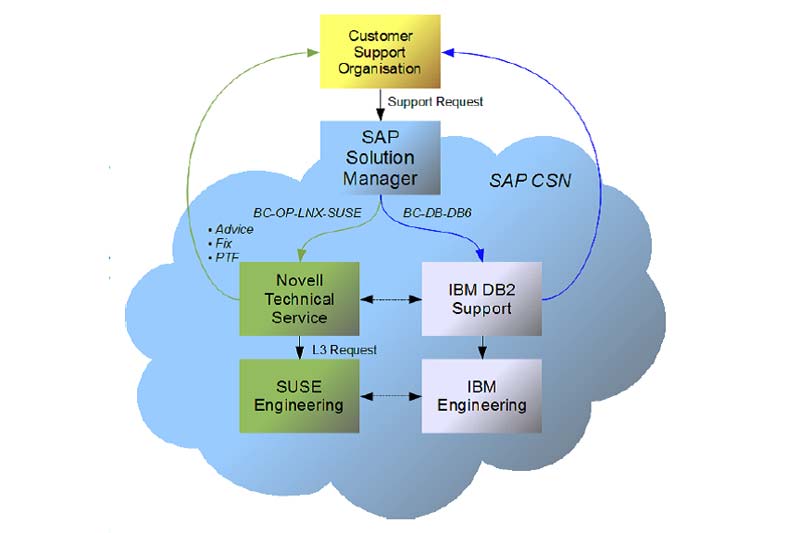Even among those companies that favor Open Source Linux use, there are differences over just how much those companies need to do to protect their enterprise users from liability.
During last month’s LinuxWorld, it became clear that not all major Linux providers are on the same page when it comes to indemnifying customers against any fallout from SCO’s $3 billion still-pending Linux copyright infringement lawsuit.
Notably, IBM and Novell execs last months outlined their views on indemnifying customers against any fallout from SCO’s Linux lawsuit. IBM remains steadfast that the suit has no merit and looks to original Linux providers, including Red Hat, SuSE Linux AG, and others. Meanwhile, Novell execs say that despite what Linux vendors’ opinion of the lawsuit are, they need to assure prospective customers.
For his part, Novell CEO Jack Messman told attendees that Novell would protect customers under a limited indemnity program. Novell will offer indemnification for copyright infringement claims made by third parties against registered Novell customers who obtain SUSE Enterprise Linux 8 after January 13, 2004, upgrade protection and a qualifying technical support contract from Novell or a Novell channel partner. Details of Novell’s program are available.
Messman also said that Linux vendors have an important lesson to learn from their proprietary vendor competitors — accountability.
He points out the reality of the fact that many vendors need to consider offering customers more Linux hand-holding, citing that many CIOs are just beginning to grapple with how Linux handles security and group developer programs, either of which could derail a Linux project.
In a portion of his keynote as reported by ComputerWorld, Messman said: “Customers have spent years learning how to work with proprietary vendors. They expect to be able to make one call … and say, ‘This isn’t working. You sold it to us, you fix it,’ ” he said. “This is the No. 1 issue on the minds of CIOs. They want support from someone they can trust. The result has to be the same for customers: one call, one throat to choke. That’s all.”
In the meantime, IBM said it plans no customer indemnity program for their Linux customers because, as IBM’s GM for Linux Jim Stallings put it, SCO’s lawsuit has “no basis,” Despite IBM’s assertions that the suit is meritless, ComputerWorld reported that Stallings hedged a bit, noting that even if Linux customers have concerns Linux distributions SUSE and Red Hat both have customer protection programs.
USENIX Goes to Washington
Relatedly, late this week the Usenix users group wrote to Congress to take issue with SCO’s view of the ongoing lawsuit over the Open Source use of all Linux IP. In a letter, USENIX said it “supports the right of programmers to choose whether to charge for their programs or to make them available for free, and we oppose any attempt to change the balance inherent in our intellectual property laws.”
In specific, Usenix wrote to Congress to take issue with SCO’s view of the ongoing lawsuit over the Open Source use of all Linux IP. In a letter, USENIX said it “supports the right of programmers to choose whether to charge for their programs or to make them available for free, and we oppose any attempt to change the balance inherent in our intellectual property laws.”
Two key points worth noting from USENIX
SCO’s stand against the GLP — USENIX states: [I]it is difficult to explain SCO’s position except by noting its hypocrisy. Many of the most popular computer development tools are available to programmers worldwide for free through the contributions of the open source development community. If their developers were to charge substantial fees for their use or to withdraw them from distribution entirely, commercial programmers such as SCO and non-commercial programmers alike would be the worse for it.
SCO’s Stand That Open Source Undermines IP Rights — USENIX counters: Nothing in
our intellectual property laws requires inventors to charge substantial fees for access or use of their inventions. In fact, the laws of copyright and patents, which underlie the intellectual property rights that most often protect computer software programs, give their owners complete discretion in deciding how large their licensing fees should be, or, indeed, whether to impose fees at all.

